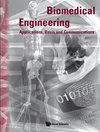利用机器学习算法预测炎症性肠病患者的癌症
IF 0.6
Q4 ENGINEERING, BIOMEDICAL
Biomedical Engineering: Applications, Basis and Communications
Pub Date : 2023-05-05
DOI:10.4015/s1016237223500114
引用次数: 0
摘要
结肠癌是世界上最常见的扩散性癌症之一,导致总死亡率为10%。预测癌症的发病及其发展的原因对这些患者来说是一个巨大的帮助和缓解,因为他们可以恢复“正常”的生活。数据挖掘和机器学习是对患者信息进行分类、预测和隐藏关系提取的重要智能工具。我们从设拉子的Shahid Faghihi医院收集数据。收集的特征包括:性别、年龄、术前癌变持续时间、患者上厕所次数、是否服用消炎药强的松龙、用药持续时间及剂量、手术种类及会诊次数、手术再治疗、尿失禁等。经过预处理和数据清洗阶段,提取出有效特征,并通过不同的分类算法预测癌症的发生。然后使用Apriori等关联规则挖掘算法获取条目之间的任何内部隐藏关系。用不同的算法逼近它们并用支持向量机对它们进行评估,预测准确率最高(84%)。由于数据集不平衡,我们选择了代价敏感支持向量机。另一方面,在应用Apriori算法后,根据数据集特征提取非炎症条件。以下是一些重要的结果。如果手术治疗或确诊时间少于5年,患结肠癌的可能性较低。此外,正如内部证实的那样,随着疾病持续时间的增加,再次手术的可能性也在增加。由于本文是在内科医生的建议下第一次提出具有这些特点的问题,因此早期发现癌症并提取有效规律对医学界是有帮助的。未来,为了获得更高的准确性,将考虑在样本数量和结肠镜图像特征方面对数据集进行改进。本文章由计算机程序翻译,如有差异,请以英文原文为准。
CANCER PREDICTION IN INFLAMMATORY BOWEL DISEASE PATIENTS BY USING MACHINE LEARNING ALGORITHMS
Colon cancer is one of the most common spread cancers in the world, which leads to total death of 10%. Prediction of onset of cancer, and the cause of its development in these patients can be of an enormous help and relief to those affected, as they can get back their “normal” life. Data mining and machine learning are important intelligent tools for classification, prediction and hidden relation extraction between patient information. We collected data from Shahid Faghihi Hospital in Shiraz. Features collected are as follows: Gender, age, duration of cancer before surgery, number of times the patients used bathroom, taking anti-inflammatory drug prednisolone, duration of drug use and dosage, kind of surgery and number of times consulted and retreatment of surgery, incontinence, etc. After pre-processing and data cleaning stages, effective features were extracted, and also occurrence of cancer predicts by using different classification algorithms. Then association rule mining algorithms like Apriori were used for obtaining any internal hidden relation between entries. Approaching them with different algorithms and assessing them with support vector machine was with highest prediction accuracy (84%). Due to unbalanced dataset, we chose cost sensitive support vector machine. In another aspect, after applying Apriori algorithm, the conditions of non-inflammation were extracted based on dataset features. Some significant outcomes are in what follows. If surgery treatment or diagnosed was less than 5 years, the possibility of developing colon cancer is lower. Also, as the duration of disease increases, the possibility of reoperation increases, as confirmed by the interiors. Since this issue with these features was raised for the first time in this paper at the suggestion of internists, early detection of cancer and also the extraction of effective laws can be of help to the medical community. In future, to get higher accuracy, the improvement of the dataset in terms of number of samples and colonoscopy image features is considered.
求助全文
通过发布文献求助,成功后即可免费获取论文全文。
去求助
来源期刊

Biomedical Engineering: Applications, Basis and Communications
Biochemistry, Genetics and Molecular Biology-Biophysics
CiteScore
1.50
自引率
11.10%
发文量
36
审稿时长
4 months
期刊介绍:
Biomedical Engineering: Applications, Basis and Communications is an international, interdisciplinary journal aiming at publishing up-to-date contributions on original clinical and basic research in the biomedical engineering. Research of biomedical engineering has grown tremendously in the past few decades. Meanwhile, several outstanding journals in the field have emerged, with different emphases and objectives. We hope this journal will serve as a new forum for both scientists and clinicians to share their ideas and the results of their studies.
Biomedical Engineering: Applications, Basis and Communications explores all facets of biomedical engineering, with emphasis on both the clinical and scientific aspects of the study. It covers the fields of bioelectronics, biomaterials, biomechanics, bioinformatics, nano-biological sciences and clinical engineering. The journal fulfils this aim by publishing regular research / clinical articles, short communications, technical notes and review papers. Papers from both basic research and clinical investigations will be considered.
 求助内容:
求助内容: 应助结果提醒方式:
应助结果提醒方式:


